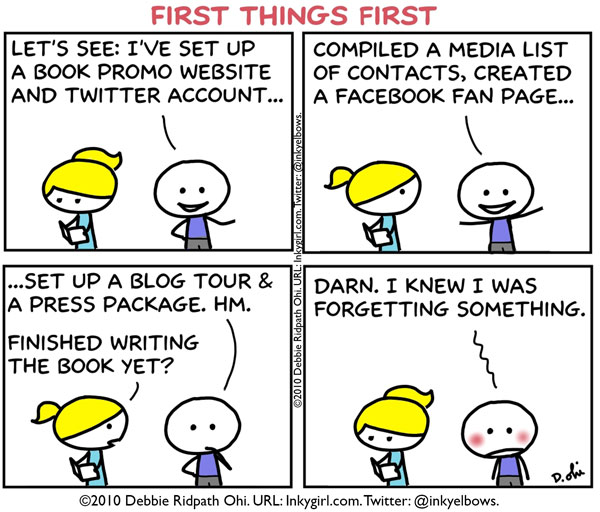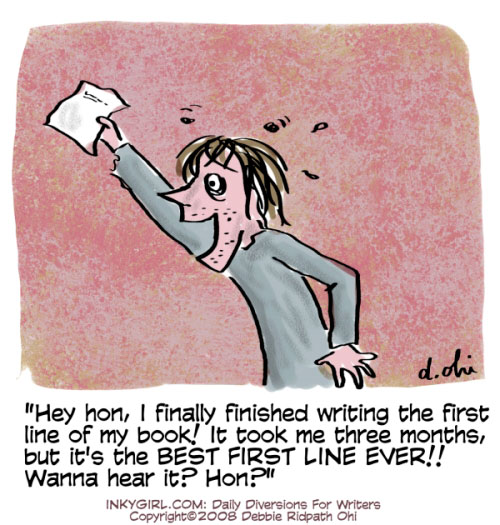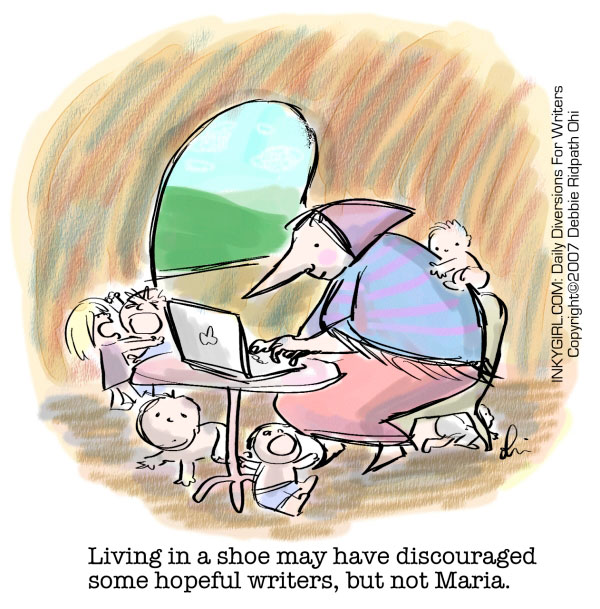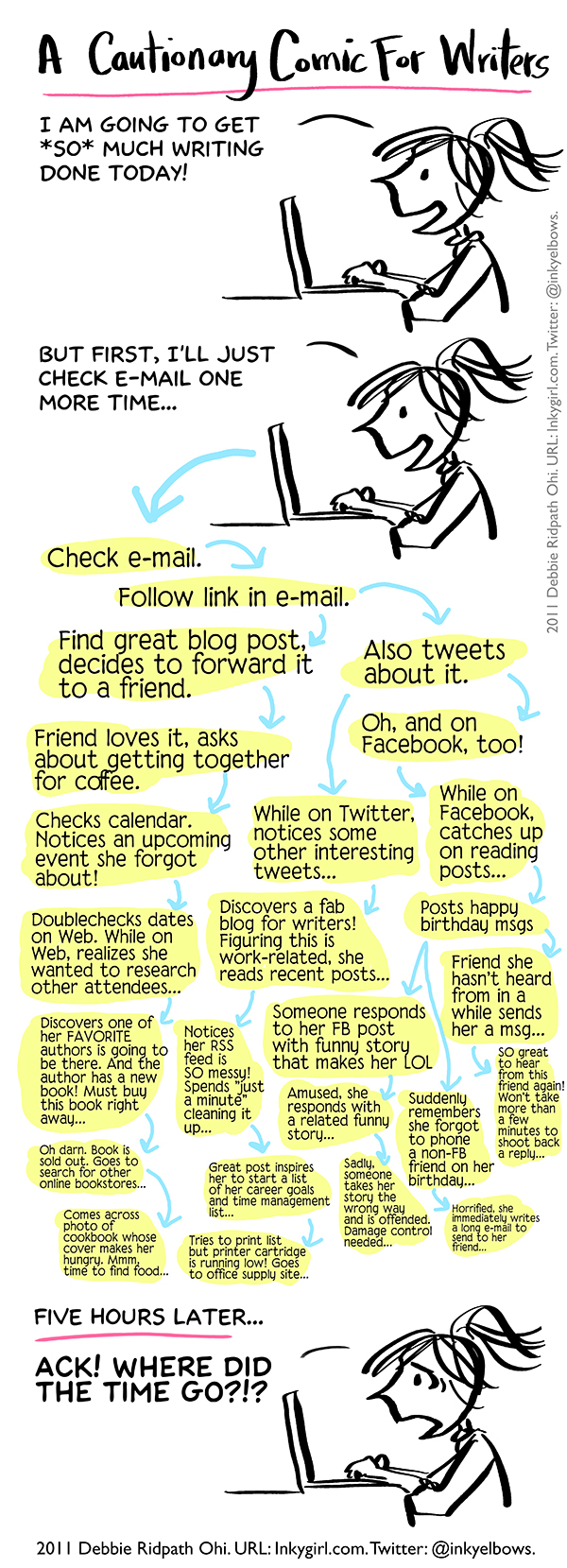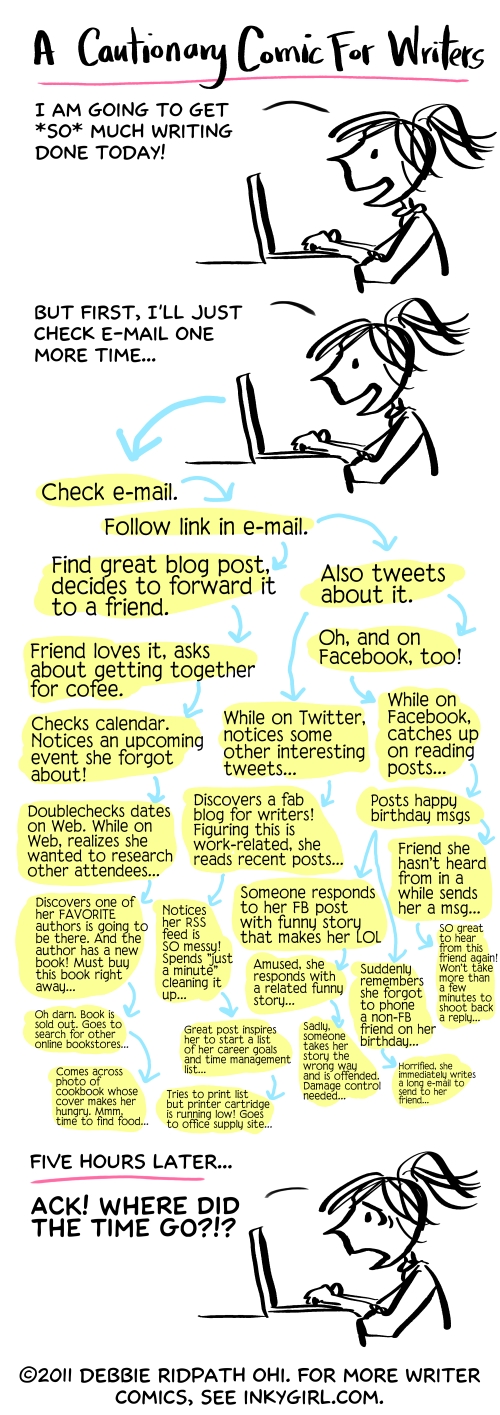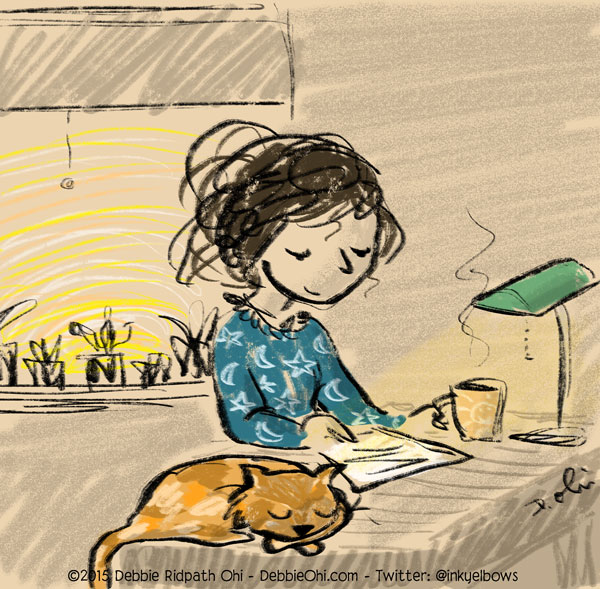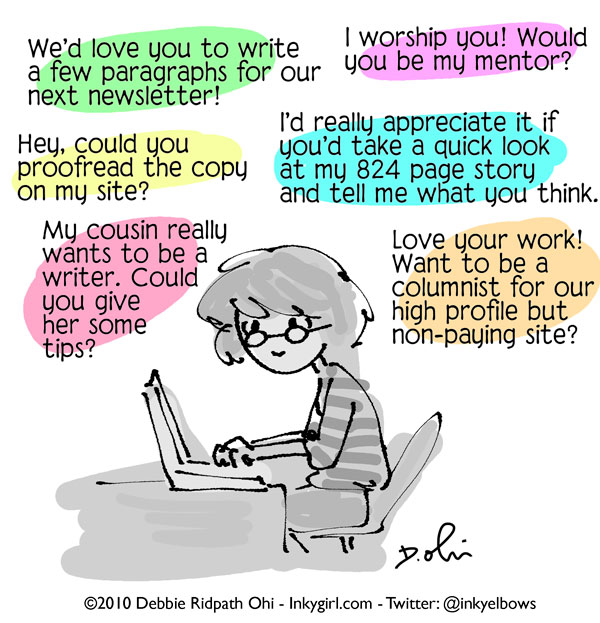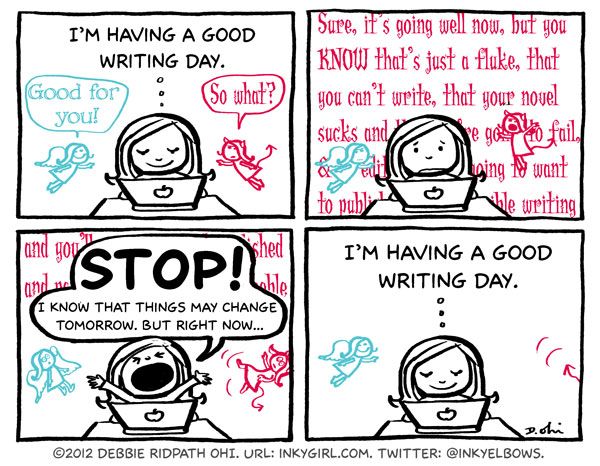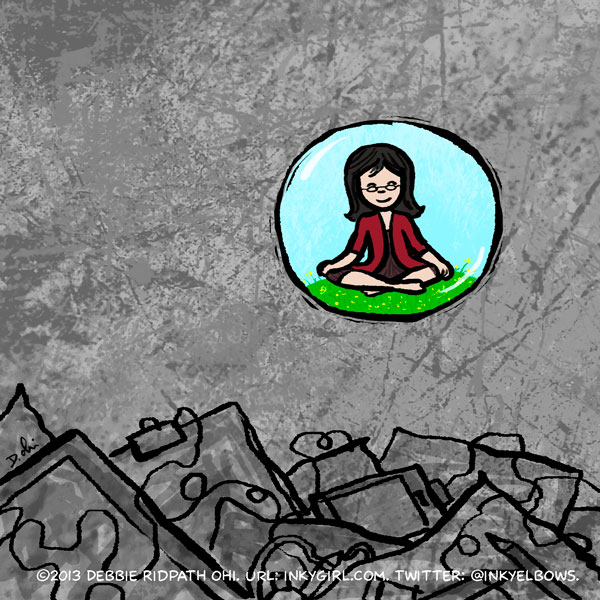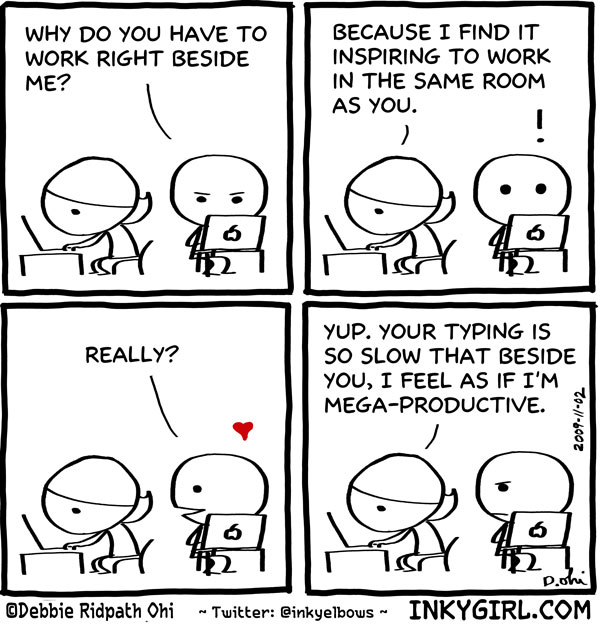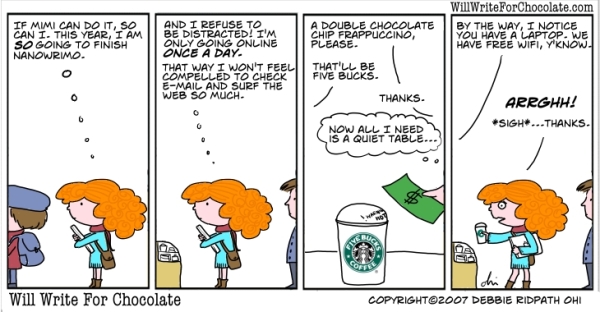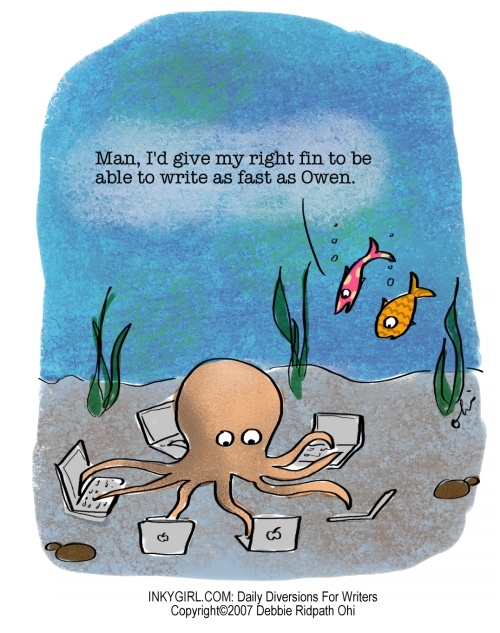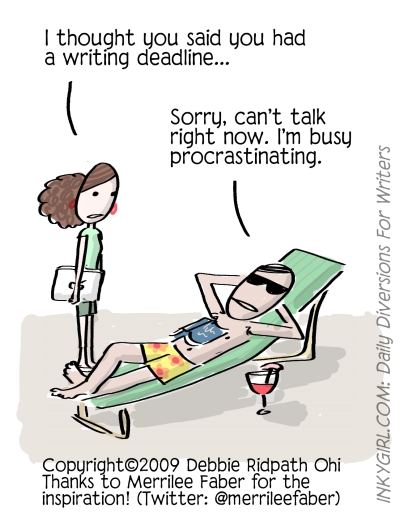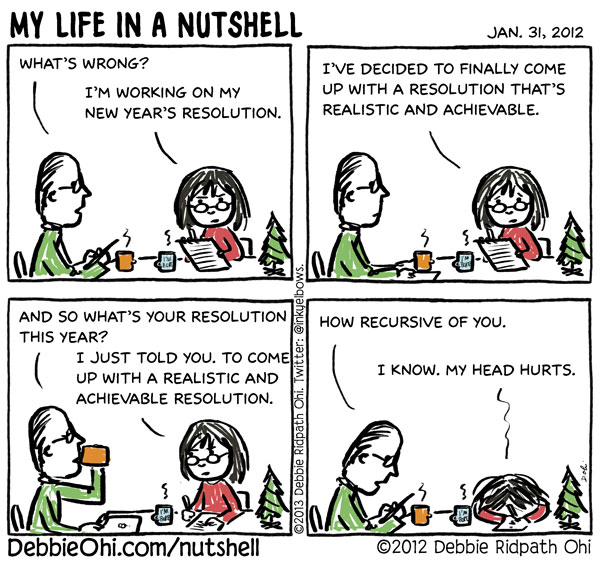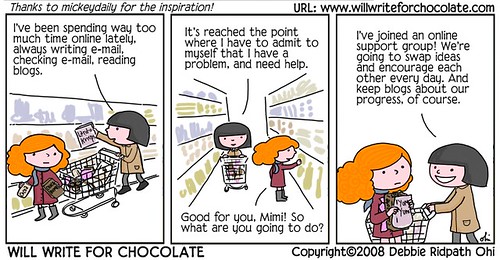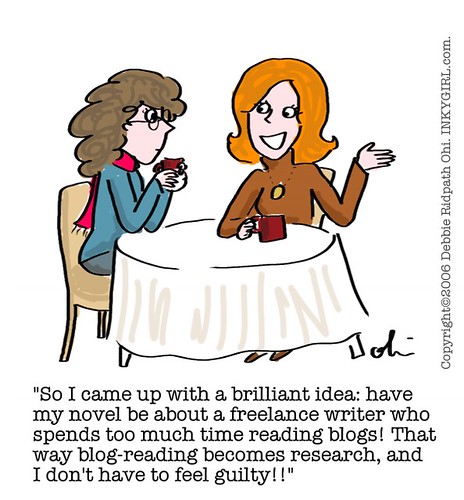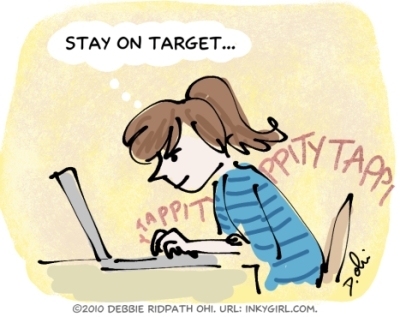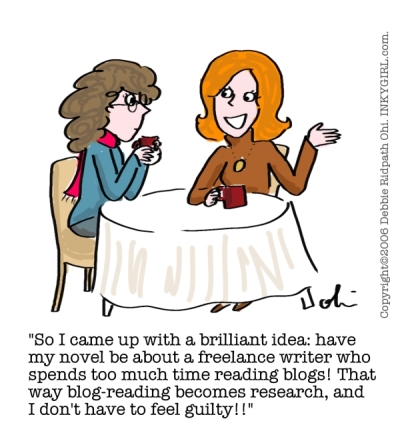
Helaine Becker is one of the most enthusiastic and productive writers I know. I met Helaine through Torkidlit: the Toronto Area Middle Grade and YA Author Group. She has written over 50 books, including the best-selling picture book, A Porcupine in a Pine Tree, the Looney Bay All-Stars series; popular non-fiction, including Magic Up Your Sleeve, Secret Agent Y.O.U. and The Quiz Book for Girls; and young adult novels including Trouble in the Hills and How to Survive Absolutely Anything.
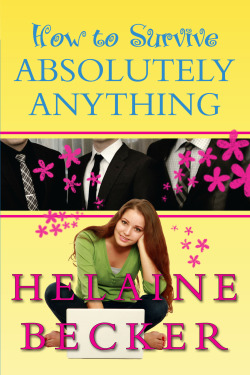 Q: Could you please tell me a little bit about your book? What inspired you to write it? What it's about?
Q: Could you please tell me a little bit about your book? What inspired you to write it? What it's about?
Author and friend Marsha Skrypuch inspired me to write the book. We were having lunch one day and we were discussing how, when you write illustrated books for children, your royalties are divided with the illustrator. Fair enough. But Marsha said, “Gee, Helaine, if you wrote a YA novel, you might make more money since you won’t have an illustrator….”
As a hardworking writer, the idea of making more money appealed to me, so I thought I’d give it a try! I had a story idea niggling at the back of my brain, so I wrote it up. And Voila! How to Survive Absolutely Anything was born.
I somehow don’t think I’m going to wind up making that much more money on it than some of my picture books (A Porcupine in a Pine Tree hit #1 on the National bestseller list last year). Nevertheless, I enjoyed writing it, learned a lot about the craft of writing from doing it, and have enjoyed the whole process immensely.
Q: What was your research/writing process? How did the book get published?
This book did not require any major research, but most of my other books – I do a lot of nonfic – have a lot of research involved in them. For Trouble in the Hills, a YA adventure that I wrote after How to Survive….. (but it was published first), I had to research what a dead body that had been lying in an alpine cave for a year would look like. That was delightfully gruesome.
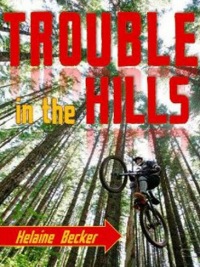 I also had to research drug growing in BC, human trafficking in BC, and mountain biking – to get all the info I needed I had to dig into newspaper stories, but also interview forensics pathology experts and cyclists in Grand Forks BC.
I also had to research drug growing in BC, human trafficking in BC, and mountain biking – to get all the info I needed I had to dig into newspaper stories, but also interview forensics pathology experts and cyclists in Grand Forks BC.
I’m working on another YA novel right now that involves fireworks. To research that project, I signed up for “Fireworks School” – a training course for pyrotechnicians. I’m now certified – as well as certifiable. ;)
How did Survive get published? After I wrote it, I stuffed it my drawer and tried my hand at a second, more ambitious novel. Both of these novels then went through the “kidcrit” process – the online critique group through Compuserve. Funnily enough, people seemed to like the second book better, so I tried to sell that one first, with no luck.
Now, looking back at it, I can see the flaws in it, so maybe one day that will get a rewrite. Anyhow, after a trip to Grand Forks BC for an author tour, I conceived the plot for Trouble in the Hills.
I wrote up a synopsis and some sample chapters and pitched it Christie Harkin at Fitzhenry and Whiteside. She liked it and offered to buy it. In conversation I told her I also had a “girls” manuscript, and she asked to see it.
Surprise surprise, she liked that too, and bought both of the books in a two-book deal. Trouble came out in Autumn 2011; How To Survive came out in June 2012. We’re talking about a sequel to Trouble in the Hills now – we’ll have to see what happens!
I didn’t have an agent to sell these books. In fact, although I ‘ve had an agent at several points in my career, I’ve always sold my own work directly. I don’t think anyone can really represent you better than you can yourself if you have sales skills.
I’ve published more than 50 books, trade and educational, in Canada and the US, without an agent. I think it’s a lot harder to do this, though, in the US trade market than it is in Canada or in the educational field. So I am now talking with my dream agent to rep my work in the US. We’ll see how that goes but my fingers are crossed that we’ll work something out and I can continue to grow my career with her.
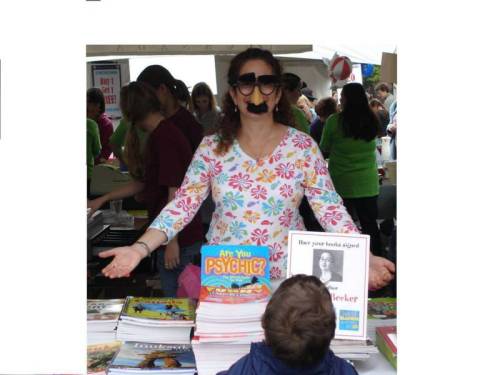
Q: You said you learned a lot about the craft of writing while working on How To Survive Absolutely Anything. Could you give an example?
I had often heard people talking about how too many varied dialogue attributions (remarked, demanded, cried, interrupted, etc. instead of a simple “said”) and attributions modified by adverbs weaken your text. I didn’t really see it, until I was revising this book. Then I finally understood! Rather than saying, “Close the door,’ she scolded angrily,” it would be stronger writing to put “Shut that damn door already!”
Once I saw how adapting my dialogue in that way would get rid of lots of unnecessary words and make the whole text tighter, I went through the whole manuscript again, making changes. This was, unfortunately for my poor editor, the day before the book was supposed to go to press! But we both agree – it was worth it. The book is better now than it would have been.
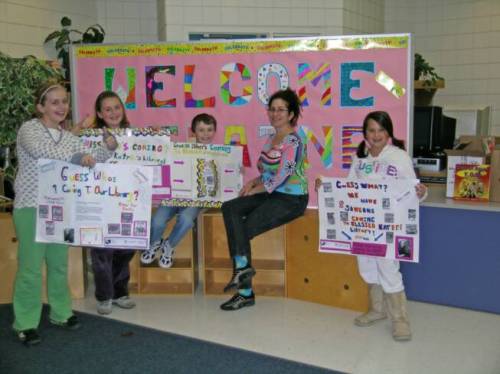
Q. I've heard such great things about your school presentations! What one piece of advice would you give a new author who is just starting to give presentations?
Ask another writer if you can go and observe their presentations before you do your own. That way you can learn the ins and outs – how to check in with the school office, how to present your invoice, how to organize your space, etc.
Observe how the author handles interruptions, how they handle questions and answers, etc. It’s much easier when you’ve seen someone else do it first rather than going in completely cold. Also remember that kids are very forgiving audiences so don’t fret too much. It will turn out ok, and if it doesn’t people will still enjoy a good laugh!
 Helaine's dog Ella is always present while H. works, adding editorial commentary.Q: How much outlining do you do? What is your typical work process or work day?
Helaine's dog Ella is always present while H. works, adding editorial commentary.Q: How much outlining do you do? What is your typical work process or work day?
Some of my books have been completely outlined. Others, like How to Survive, were more organic. I prefer to work with an outline. My typical work day starts late (after ten) and very slowly. I’m not a morning person, which is one reason why I’m a writer – I’ve been fired from every job I’ve ever had, mostly for being late! (If work started at noon….)
I like to warm up by checking and writing emails, then gradually work my way into the frame of mind to start writing REAL stuff. That being said, I’m extremely disciplined.
I write pretty much every day between 10-4, and if I’m on a deadline, between 10 and whatever. I work in my kitchen and can tune out everything around me as I work, much to the annoyance of my family. They want me stop typing and start making dinner. They, however, know where the fridge and stove are too, so I ignore them.
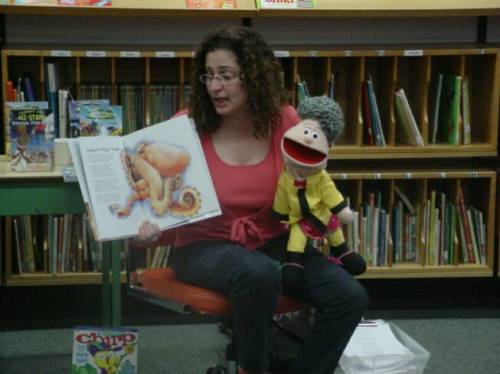
Q: What advice do you have for aspiring authors?
I know most people tell you you should read a lot and get writing partners etc. But I think every single writer should take some basic business and sales courses. As a writer, you are really the sole proprietor of a business.
You need to know how to run your business and sell your product if you want to have a hope in hell of making a living and/or not getting stomped by unscrupulous parties.
I spend at least 50% of my work time preparing pitches and putting prospective projects “in the pipeline” – that’s a basic sales technique that guarantees you never wake up one morning with no contracts and no work and a mortgage you can’t pay.
I’m going to be teaching a session at Canscaip’s Fall writing conference, Packaging Your Imagination, on this topic. If you are in the Toronto area and have no idea what “qualifying the customer” or “profit centre” mean, this seminar is for you.
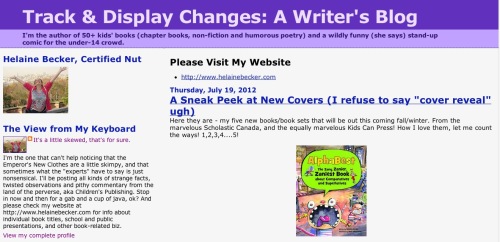
Q: What are you working on now? Anything else you'd like people to know?
What am I working on now? A zillion things, as usual. I have four – yes four! – books coming out this fall, 2 quiz books and two picture books, both of which have final edits on the go.
I’ve just finished my first draft of a new nonfic for Kids Can Press, coming out in 2013. I’m on the fourth draft of a YA horror, and working on the first draft of a funny middle grade novel.
Going back and forth between those two books as well as a verse picture book I’m polishing for Scholastic Canada really makes my head spin! I also put manuscripts away for a while to mature (this really means I didn’t have luck selling them the first time out!).
I pick those up when I have time and look at revising them. I’ve got three of those in the “on deck” circle right now.
I NEVER consider any project dead – they are all just resting. I’ve recently gotten an offer on a project that has been in my drawer since 1999. The Big Green Book of the Big Blue Sea (Kids Can Press, 2012) was based on a pitch I wrote up in 1998. And my quiz book series with Scholastic Canada grew out of another ancient proposal that I’m sure most people would have considered compost. I just looked it up – it had originally been dinged in 2002. But when the opportunity arose, I rewrote the pitch and gave it to Scholastic, and now, well, it’s four-books and more, I hope to come!
So my advice would be to everyone to hang on to all your old stuff and periodically go through it to see what still has potential. Often good projects are rejected because the timing or fit is bad.
When the times change, and personnel changes, you may find the perfect fit for that old raggedy project, restitched into a new suit.
Q: Where can people find you online?
Here are all my online deets:
www.helainebecker.com
www.helainebecker.blogspot.com
www.sci-why.blogspot.com
follow me at www.twitter.com/helainebecker
------------------------
Did you enjoy this interview? Check out other Inkygirl interviews.
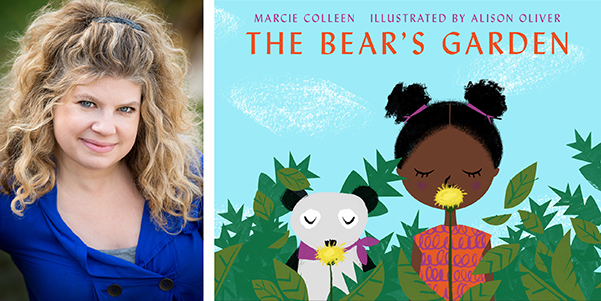





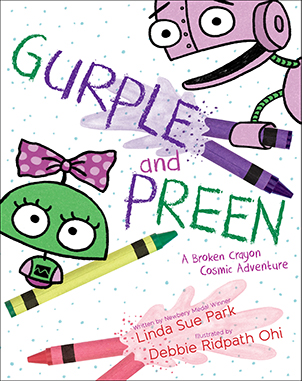
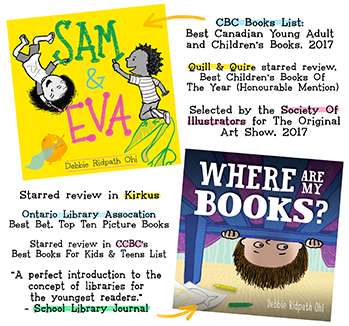



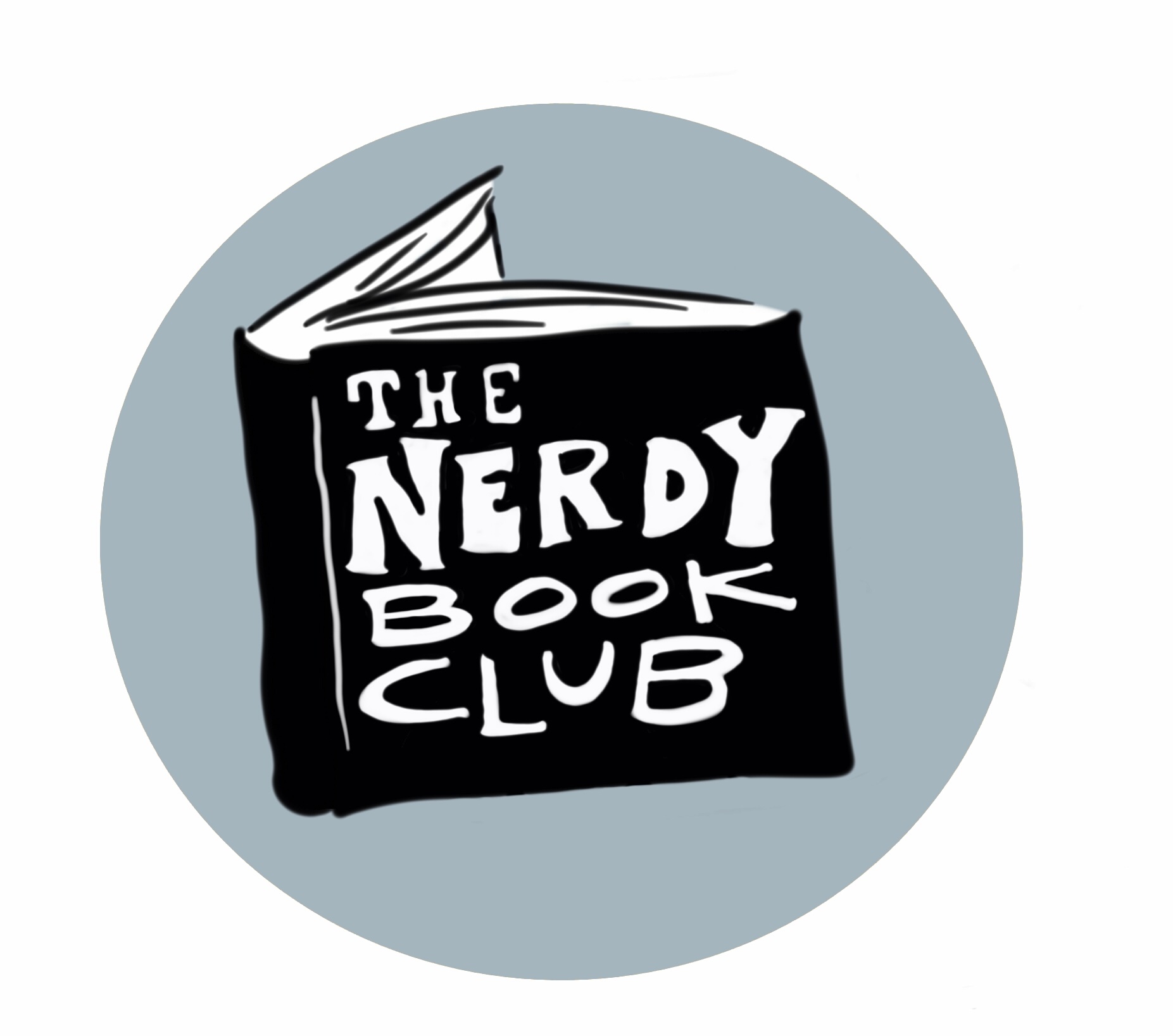

 Sunday, March 22, 2020 at 9:43 AM
Sunday, March 22, 2020 at 9:43 AM